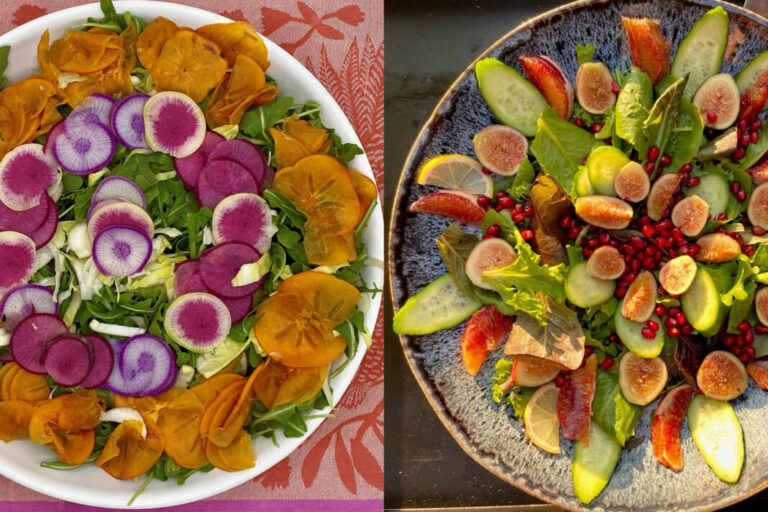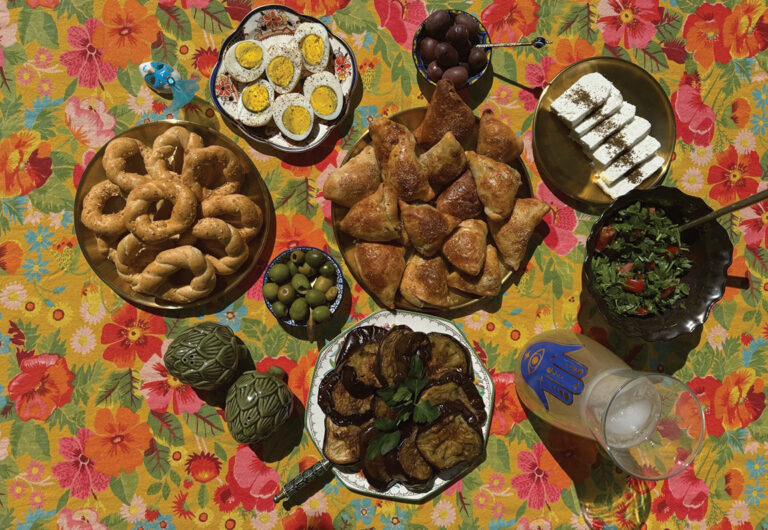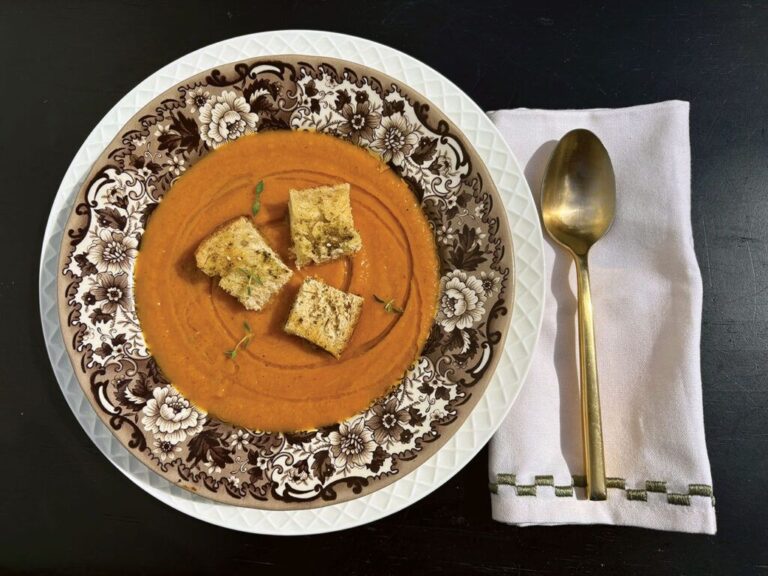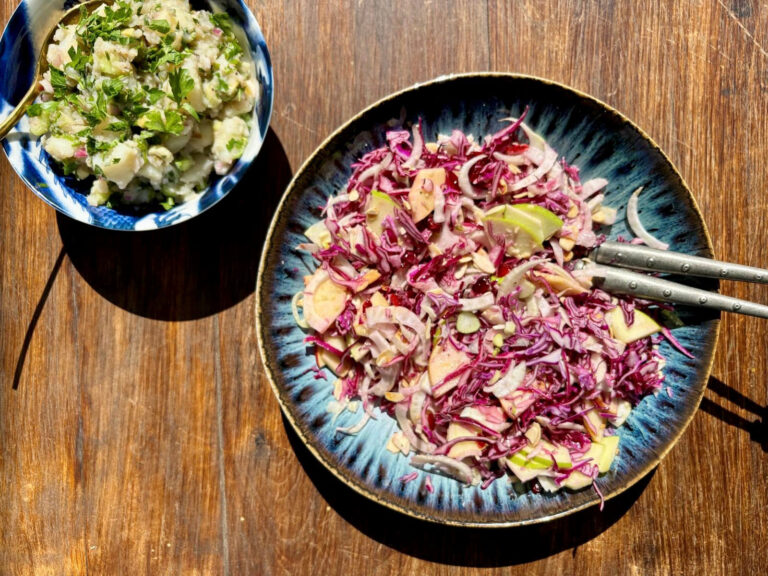Moroccan Fish: A Taste of Casablanca for Passover
Maman’s Moroccan Fish recipe steams the fish in a rich, hearty, spicy, tomatoey stew.
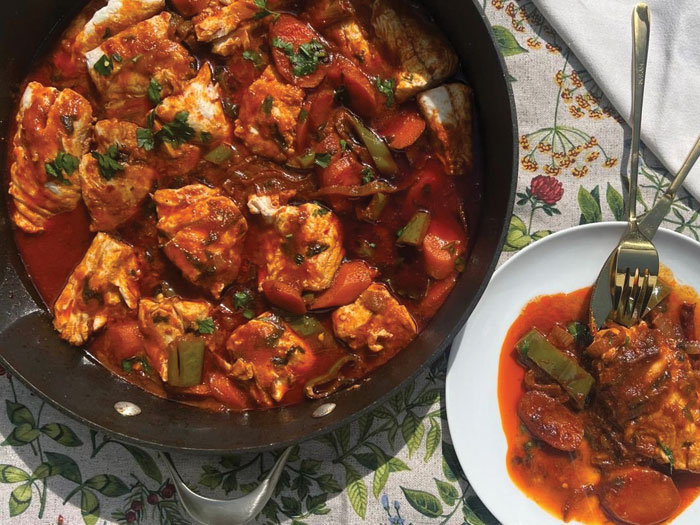
My memories of Casablanca come in snapshots. Bright blue skies, tall palm trees, the boulevard outside the balcony of our apartment. My cousins and my brothers blaring pop music. My Maman and her sister, my aunt Clara, with their perfect bouffant hairdos and their impossibly chic clothes. My father and my uncle Menasse and their friends playing cards and smoking cigarettes.
One memory which I can only imagine is the Bab Marrakech, the imposingly grand and ornate sandstone wall that surrounds the old Medina of Casablanca. Behind its grand walls sits the old Jewish quarter, called the Mellah. Also behind the Bab Marrakech is the exotic old souk with its magical sights and smells and sounds. The many vendors hawking their different wares — gallons of olive oil and olives of every color and variety, fragrant fruits and bright fresh vegetables, plump black dates, soft dried apricots and nuts.
Of course, there is the pungent, aromatic smell of the spices. The mounds and mounds of powdery spices. A brilliant, earthy collage of deep reds and browns, yellows and oranges. Paprika and cinnamon, mustard and turmeric, cayenne and saffron, cumin and ras el hanout, to name a few.
Bab Marrakech is where my mother and my aunt would go to place their fish orders. On Fridays and on the eve of Jewish holidays, the fish would be delivered to our homes, fresh off the fishing boats that docked in the nearby port.
My cousin Simy remembers that for Passover her grandmother would make a special fish called shad. This freshwater fish had a large roe sac, which would simmer in a tomato broth made with fresh tomatoes and flavored with cumin and paprika.
Proximity to the Atlantic Ocean meant that we ate a lot of fish. Sardines, millets, mackerel, hake, whiting, sole, pandora, sea bream. But most often for Friday nights, my mother would prepare Lou de Mer, which is a firm, white branzino.
Maman’s Moroccan Fish recipe steams the fish in a rich, hearty, spicy, tomatoey stew. The sauce has a satisfying umami depth which comes from spicy harissa and dried peppers, smoky paprika and garlic melded with the exuberance of juicy tomatoes, sweet red peppers, cilantro and preserved lemons. My family recipe includes carrots for sweetness and garbanzo beans to offset the spiciness.
Moroccan fish is a perfect dish to prepare for Passover. Our ingredient list gets a little bit shorter on this holiday, so I’ve adapted this recipe for Passover.
Nowadays, I prepare this dish with whitefish, halibut, cod or sea bass, but any firm fish works with this recipe. If your family loves salmon, that is good too. In fact, salmon has become the go-to fish in many Moroccan kitchens in America because it absorbs the flavors of the sauce without falling apart or becoming dry.
—Rachel
One day, Rachel and I and our families will travel to Morocco together, be’ezrat Hashem. Morocco is a country that maintains warm ties to Israel and where the king, Sultan Mohammed VI, extends his hand in friendship to the Jewish people. In the meantime, Rachel and I will have to be satisfied with writing about this land.
North African Jewry transported their culture and cuisine to Israel with great success. The mystical religious traditions, like the henna ceremony and Mimouna have captured the Israeli imagination.
The Maghreb is a region that has been home to an ancient Jewish community since Roman times. It’s a part of the world that captures the imagination. North African Jewry transported their culture and cuisine to Israel with great success. The mystical religious traditions, like the henna ceremony and Mimouna have captured the Israeli imagination. As you may know from reading this column, exotic things like matbucha and shakshuka, preserved lemon, harissa and ras el hanout are part of the lexicon of Israeli food.
Rachel and I hope you save this recipe for Moroccan Fish and prepare it for Passover and beyond. This recipe is bursting with flavor but it’s also forgiving and foolproof. The technique of poaching the fish in a rich, flavorful sauce is the main takeaway. (Add creamy potatoes for an even heartier, more rustic dish.) And if you haven’t preserved your lemons in advance, Rachel shares her hack for an extra quick way to get them.
—Sharon
Moroccan Fish
3 lbs of branzino, filleted and cut into pieces
1/4 tsp salt, for salting fish
1/4 cup olive oil
6 garlic cloves, finely sliced
1 Tbsp cumin
2 Tbsp sweet paprika
1 tsp salt
1 tsp white pepper
1 large yellow onion, thinly sliced
1 red pepper, sliced in thin strips
1 yellow pepper, sliced in thin strips
3 medium carrots, cut into thick diagonal chunks
3 Tbsp tomato paste
1/4 cup preserved lemon, finely diced or juice of one lemon
1 dry red chili or 1 seeded jalapeño
3/4 cup water
1 bunch fresh cilantro, finely chopped
1/3 cup water
Rinse fish filets with cold water and pat dry. Season fish with salt, then place skin down on top of paper towel. Set aside.
In a large round skillet with lid, warm oil over low heat and add garlic, spices, peppers and carrots. Sauté for 3 minutes to coat the vegetables with spices.
Add tomato paste, preserved lemon or lemon juice and chili pepper. Stir until all sauce is smooth and the ingredients are coated, about 2 minutes.
Add 3/4 cup water, cover and simmer for 15 minutes. Stir occasionally to ensure sauce doesn’t stick to the bottom of the pan.
With a large spoon, move the carrot and onion to the outer edges of the pan. Place fish in the center of the pan, then spoon a generous amount of sauce onto each piece.
Add chopped cilantro, reserving a handful for garnish.
Add 1/3 cup water, cover and simmer for another 10 minutes, depending on the thickness of fish.
Fish can be re-heated in a covered pan over low heat or in the oven.
Add reserved fresh cilantro just before serving.
Quick preserved lemon
1 lemon, washed, thinly sliced and pitted
1/2 cup kosher salt
Dip each slice of lemon into a bowl of kosher salt, fully coating all sides.
Place in a baggie or freezer safe container and freeze for a few hours or a day.
Use just like preserved lemon.
Sharon Gomperts and Rachel Emquies Sheff have been friends since high school. The Sephardic Spice Girls project has grown from their collaboration on events for the Sephardic Educational Center in Jerusalem. Follow them on Instagram @sephardicspicegirls and on Facebook at Sephardic Spice SEC Food.

